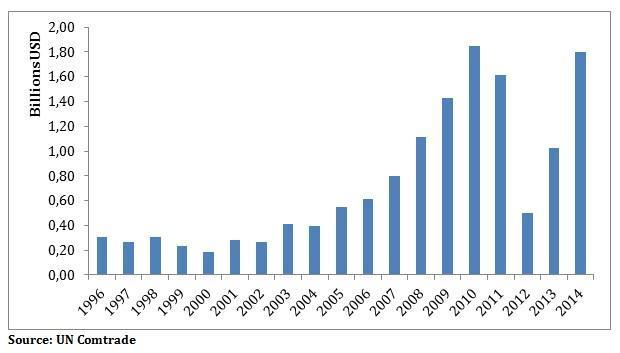ISIL is a threat to Turkey
 I was just looking at the results of Metropoll’s latest survey regarding the threat posed by the Islamic State of Iraq and the Levant (ISIL). The results are clear: Four out of five people in Turkey consider ISIL to be a threat.
I was just looking at the results of Metropoll’s latest survey regarding the threat posed by the Islamic State of Iraq and the Levant (ISIL). The results are clear: Four out of five people in Turkey consider ISIL to be a threat. “Any kind of operation against ISIL is welcome,” say 90 percent of Turkey’s population, according to the survey. The same overwhelming majority agrees that “ISIL has nothing to do with Islam.” Only less than 5 percent of Turkey has something good to say about the group. They are probably the kinds of people who attacked the anti-ISIL demonstrators at Istanbul University on Sept. 26.
Good for Turkey, I say. Why do people on the street consider ISIL a threat? Let me give you three reasons.
First of all, Turkey is a trading nation. Trade is something we only began in the 1980s, but we went into it with a vengeance. Terror and instability are bad for trade and the wars in Iraq and Syria have compromised Turkey’s trade routes through to the Gulf. Container routes were cut off. Turkish commercial interests were impaired. Just look at the graph: Whenever the number of civilian casualties increases, as recorded by iraqbodycount.org, the volume of trade declines, and vice versa. The more ISIL activity there is in the region, the more Turkish commercial interests suffer. So Turks have an economic reason to hate ISIL.
Secondly, Turkey now has around 1.5 million Syrian refugees. But you just cannot deal with a problem without naming it. Turkey refrains from giving these people official refugee status. So the government refuses to shift its thinking as the humanitarian and social problem is growing inside the country. People are trying to be nice about it, but there is a sense of helplessness in the air. Are Syrians eventually going to learn Turkish? How are we going to integrate them into our cities? Are they going to turn to crime? It has been three years now and we still have not been able to change the traffic plates on Syrian cars on Turkey’s roads. We should admit that our institutions are not equipped to even recognize the problem.
But why are the Syrians, and increasingly the Iraqis, stranded in Turkey in the first place? Because of ISIL, which gives Turks another reason to hate the group.
Thirdly, Turkish Islam is different from ISIL’s Salafism. The Salafists have a literalist understanding of Islam and see nearly all others as apostates. Our Hanafi-Maturidi, in the 9th century tradition, allows for individual choice and rational thought. That is why sources still refer to Turks as having “turned to Abu Hanafa’s religion.” In the last century of the Ottoman rule, the Hanafi School was still dominant in Istanbul, Cairo, Beirut, Baghdad and Aleppo – all the major cities of the empire. Yet, only in Asia Minor, around Istanbul, did the school thrive. How many other ways can you explain that the founding fathers of the Republic managed to annul the caliphate? The Anatolian understanding and practice of Islam does not lend itself well to outside subscriptions, especially not if the outsider condemns them to hell. That means that Turks have a religious reason to hate ISIL as well.
Turkey definitely has a short-term role to play in the war against ISIL. We should control border traffic and support the coalition attacks. But we also have a longer term role. ISIL feeds on discontent. The best way to fight it is to integrate the Middle Eastern economies into the global economy. That should be a long-term role for the most globally integrated and inclusive Muslim country.












